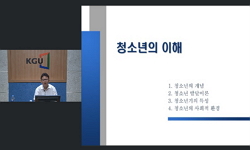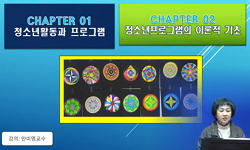This study is a study of the donation behavior of teenagers who have been neglected until now, and aims to provide academic data by identifying the influence of parental donation behavior. We also want to make teenagers aware of important resources in...
http://chineseinput.net/에서 pinyin(병음)방식으로 중국어를 변환할 수 있습니다.
변환된 중국어를 복사하여 사용하시면 됩니다.
- 中文 을 입력하시려면 zhongwen을 입력하시고 space를누르시면됩니다.
- 北京 을 입력하시려면 beijing을 입력하시고 space를 누르시면 됩니다.
https://www.riss.kr/link?id=T15771669
- 저자
-
발행사항
서울 : 연세대학교 사회복지대학원, 2021
-
학위논문사항
학위논문(석사) -- 연세대학교 사회복지대학원 , 사회복지학전공 , 2021.2
-
발행연도
2021
-
작성언어
한국어
-
주제어
청소년 ; 기부 ; 향후기부의사 ; 부모의 기부 ; 사회적 관계망 ; 삶의 만족도 ; 부모의 학력 ; 부모의 소득 ; Youth ; Donation ; Donation intention ; Parents' Donation ; Social Network ; Life Satisfaction
-
발행국(도시)
서울
-
기타서명
A study on the relationship between parents and children's donation behavior
-
형태사항
vii, 52 p. : 삽화 ; 26 cm
-
일반주기명
지도교수: 강철희
-
UCI식별코드
I804:11046-000000531096
- 소장기관
-
0
상세조회 -
0
다운로드
부가정보
다국어 초록 (Multilingual Abstract)
This study was conducted nationwide and used the 2019 National Statistical Office Social Survey data, which is highly reliable and representative data for analyzing individual donation behaviors of citizens, and 2,045 teenagers under the age of 19 were selected from a total of 36,310 samples. Since the child's donation behavior, which is a dependent variable in the study model, consists of categorical variables (child's donation status, child's donation intentions), the analysis was conducted using binary logistic regression to determine the impact of each independent variable on the dependent variable. The main findings of this study are as follows:
First, it is the donation behavior of teenagers. 1,718(84%) respondents did not participate in the donation, and 327 (16%) participated in the donation. 921 respondents (45 percent) have intention to donation, and 1,124 (55 percent) do not.
Second, a binary logistic regression analysis was conducted to determine the impact of parents' donation behavior on their children's donation behavior. Parents' participation in donations and the number of donations were found to be a significant determinant of their children's donation. It has been confirmed that women are more likely to donate their children's gender than men, and the more their children's social networks are, the more likely they are to donate. It was found that parents' participation and number of donations were equally significant factors in their children's donation intentions, and that women rather than men were more likely to donate if their children had more social networks and higher satisfaction in life. The amount of parents' donations is not a significant determinant of their children's participation in donations and their donation intentions, and the educational background and income of their parents are not important in the donation behavior of teenagers. This study can be meaningful in that it provides academic basic data by more objectively identifying the influence of parental donation behavior, identifying the influence of parental donation on juvenile donation behavior, and considering both parental and child factors. Fundraising organizations need to find ways to raise money for existing donors and potential donors with children to participate in donations together and inform them of the need for sharing education to practice donations.
This study is a study of the donation behavior of teenagers who have been neglected until now, and aims to provide academic data by identifying the influence of parental donation behavior. We also want to make teenagers aware of important resources in the contribution sector of our society.
This study was conducted nationwide and used the 2019 National Statistical Office Social Survey data, which is highly reliable and representative data for analyzing individual donation behaviors of citizens, and 2,045 teenagers under the age of 19 were selected from a total of 36,310 samples. Since the child's donation behavior, which is a dependent variable in the study model, consists of categorical variables (child's donation status, child's donation intentions), the analysis was conducted using binary logistic regression to determine the impact of each independent variable on the dependent variable. The main findings of this study are as follows:
First, it is the donation behavior of teenagers. 1,718(84%) respondents did not participate in the donation, and 327 (16%) participated in the donation. 921 respondents (45 percent) have intention to donation, and 1,124 (55 percent) do not.
Second, a binary logistic regression analysis was conducted to determine the impact of parents' donation behavior on their children's donation behavior. Parents' participation in donations and the number of donations were found to be a significant determinant of their children's donation. It has been confirmed that women are more likely to donate their children's gender than men, and the more their children's social networks are, the more likely they are to donate. It was found that parents' participation and number of donations were equally significant factors in their children's donation intentions, and that women rather than men were more likely to donate if their children had more social networks and higher satisfaction in life. The amount of parents' donations is not a significant determinant of their children's participation in donations and their donation intentions, and the educational background and income of their parents are not important in the donation behavior of teenagers. This study can be meaningful in that it provides academic basic data by more objectively identifying the influence of parental donation behavior, identifying the influence of parental donation on juvenile donation behavior, and considering both parental and child factors. Fundraising organizations need to find ways to raise money for existing donors and potential donors with children to participate in donations together and inform them of the need for sharing education to practice donations.
국문 초록 (Abstract)
본 연구를 진행하기 위해 전국을 대상으로 진행되었으며 시민 개인의 기부행동을 분석하는데 신뢰성과 대표성이 높은 통계청 사회조사 2019 자료를 사용하였다. 총 표본 36,310명의 조사대상 중 19세 미만의 청소년 2,045명을 분석대상으로 선정하여 활용하였다. 연구 모형에 있어서 종속변수인 자녀의 기부행동은 범주형 변수(자녀의 기부여부, 자녀의 향후기부의사)로 구성되므로, 각각의 독립변수가 종속변수에 미치는 영향을 확인하기 위해 이항로지스틱 회귀분석을 활용하여 분석을 실시하였다.
본 연구에 있어서 주요한 분석결과는 다음과 같다.
첫째, 청소년의 기부행동에 대해 살펴보면, 우선 기부에 참여하지 않은 경우가 1,718명(84%), 기부에 참여하는 경우가 327명(16%)이고 향후기부의사의 경우 있음이 921명(45%), 없음이 1,124명(55%)으로 나타났다.
둘째, 부모의 기부행동이 자녀의 기부행동에 미치는 영향을 확인한 결과, 부모의 기부참여와 기부횟수가 자녀의 기부여부에 유의한 결정요인인 것으로 나타났다. 자녀의 성별은 남성보다는 여성이, 자녀의 사회적 관계망이 많을수록 기부할 확률이 높은 것으로 확인되었다. 자녀의 향후기부의사에 대해서도 동일하게 부모의 기부참여와 횟수가 유의한 결정요인인 것으로 나타났으며, 남성보다는 여성이, 자녀의 사회적 관계망이 많고 삶의 만족도가 높을수록 기부할 확률이 높은 것으로 확인되었다. 부모의 기부금액은 자녀의 기부참여 및 향후기부의사에 유의한 결정요인이 되지 않으며, 청소년의 기부행동에는 부모의 학력, 소득이 중요하지 않은 것으로 나타났다.
본 연구는 청소년의 기부행동에 대한 부모의 기부행동의 영향력을 보다 객관적으로 확인하여 학문적인 기초자료를 제공하였다는 점, 청소년 기부행동에 대한 부모의 기부행동의 영향력을 밝혀낸 점, 부모의 영향요인과 자녀의 영향요인을 모두 고려하여 연구한 점에서 의의를 찾을 수 있다. 모금단체는 자녀를 가진 기존 기부자 및 잠재적 기부자를 대상으로, 부모와 자녀가 기부에 함께 참여할 수 있는 모금 방법을 모색하고 나눔교육의 필요성을 알려 기부를 실천하게끔 만들 필요가 있다.
본 연구는 지금까지 소외되어 왔던 청소년의 기부행동에 대한 연구로서, 청소년기의 특성을 반영하여 부모와 자녀의 영향요인을 모두 고려하였다. 이를 통해 학문적인 기초자료를 제공하고...
본 연구는 지금까지 소외되어 왔던 청소년의 기부행동에 대한 연구로서, 청소년기의 특성을 반영하여 부모와 자녀의 영향요인을 모두 고려하였다. 이를 통해 학문적인 기초자료를 제공하고, 청소년을 우리 사회의 기여부문에 있어서 중요한 자원으로 인식하게 하는데 목적이 있다.
본 연구를 진행하기 위해 전국을 대상으로 진행되었으며 시민 개인의 기부행동을 분석하는데 신뢰성과 대표성이 높은 통계청 사회조사 2019 자료를 사용하였다. 총 표본 36,310명의 조사대상 중 19세 미만의 청소년 2,045명을 분석대상으로 선정하여 활용하였다. 연구 모형에 있어서 종속변수인 자녀의 기부행동은 범주형 변수(자녀의 기부여부, 자녀의 향후기부의사)로 구성되므로, 각각의 독립변수가 종속변수에 미치는 영향을 확인하기 위해 이항로지스틱 회귀분석을 활용하여 분석을 실시하였다.
본 연구에 있어서 주요한 분석결과는 다음과 같다.
첫째, 청소년의 기부행동에 대해 살펴보면, 우선 기부에 참여하지 않은 경우가 1,718명(84%), 기부에 참여하는 경우가 327명(16%)이고 향후기부의사의 경우 있음이 921명(45%), 없음이 1,124명(55%)으로 나타났다.
둘째, 부모의 기부행동이 자녀의 기부행동에 미치는 영향을 확인한 결과, 부모의 기부참여와 기부횟수가 자녀의 기부여부에 유의한 결정요인인 것으로 나타났다. 자녀의 성별은 남성보다는 여성이, 자녀의 사회적 관계망이 많을수록 기부할 확률이 높은 것으로 확인되었다. 자녀의 향후기부의사에 대해서도 동일하게 부모의 기부참여와 횟수가 유의한 결정요인인 것으로 나타났으며, 남성보다는 여성이, 자녀의 사회적 관계망이 많고 삶의 만족도가 높을수록 기부할 확률이 높은 것으로 확인되었다. 부모의 기부금액은 자녀의 기부참여 및 향후기부의사에 유의한 결정요인이 되지 않으며, 청소년의 기부행동에는 부모의 학력, 소득이 중요하지 않은 것으로 나타났다.
본 연구는 청소년의 기부행동에 대한 부모의 기부행동의 영향력을 보다 객관적으로 확인하여 학문적인 기초자료를 제공하였다는 점, 청소년 기부행동에 대한 부모의 기부행동의 영향력을 밝혀낸 점, 부모의 영향요인과 자녀의 영향요인을 모두 고려하여 연구한 점에서 의의를 찾을 수 있다. 모금단체는 자녀를 가진 기존 기부자 및 잠재적 기부자를 대상으로, 부모와 자녀가 기부에 함께 참여할 수 있는 모금 방법을 모색하고 나눔교육의 필요성을 알려 기부를 실천하게끔 만들 필요가 있다.












